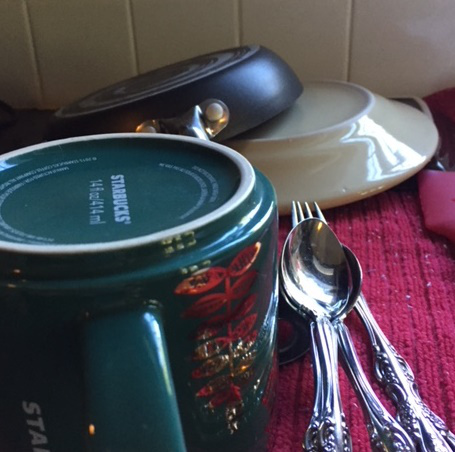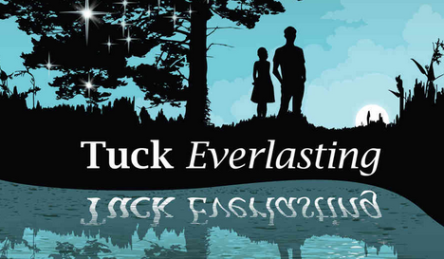
I plunge my hands into the soapy water–it is steamy, and it feels good on this first-furnace morning of fall. I wash small plates, rinse them gleaming, lay them gently on the drying pad. I shake refillable water bottles full of sudsy water, then I rinse and shake, rinse and shake, until I can’t smell a hint of dish soap. I scrub a colander from the top and spray it clean; then I turn it over and repeat the process from the bottom.
And my morning dishes are done, sparkling, cheerfully stacked. It took me, maybe, seven minutes. I dry my hands, and a horrifying thought plunks itself squarely into the middle of my mind.
Maybe I don’t really NEED a dishwasher.
Sacrilege! I shake my head hard, trying to dislodge the notion.
We have been hand-washing dishes for a month or so, since the dishwasher, which had been losing functions one by one, finally lost all initiative and sat, blinking idly, refusing to go on.
*******************
Mark is irked by the dishwasher’s demise. It is only three years old–we had the former, reliable machine for almost seventeen years. The store where we shopped defers all liability to the maker. With this company, Mark’s had trouble getting responses to his emails and calls. Google has been our best resource, offering owner’s manuals and suggestions for what to do when this light’s blinking, when that function’s unavailable,–but in these latter dishwasher days, even Google has no solution.
Mark wants the manufacturer to know our frustration. When he calls the company, a well-known, respected, appliance-maker name, he gets routed into an automated menu so complex that he gives up after 15 minutes with no hope of talking to a live person. He writes a letter instead; he is polite and measured, but he clearly expresses his unhappiness. Two weeks later, he gets a call. The customer service rep offers to sell Mark a new machine at a forty per cent discount.
“Why would I buy another machine from you,” he asks, “when I was so unhappy with the first one? When no one responded to my questions or returned my emails?”
“Well,” says the clerk, “we wish you nothing but the best.”
Mark grimaces and puts the phone down. “Notice,” he says, “they never offered to fix the dead machine.”
Meanwhile, we do dishes by hand.
*******************
There are only three people and one small dog in our household: washing dishes by hand is not a huge inconvenience. And while we fill the sink with suds and plunge the dirty dishes into those soapy depths, we are circling around the purchase of a new dishwasher. By holiday baking time, I am pretty sure, a machine will be installed and functioning.
But I have to admit, I don’t NEED it. With a little effort, a little planning, I can get by just fine hand-washing my dishes.
It makes me wonder what else I depend on that I don’t really need–need to have, or need to do.
*********************
For instance.
Every month, in the last six or seven years of my working life, I went faithfully to Don, my ‘coiffure engineer’ (a wonderful, wonderful man, and an artist, to boot), sat myself down, and had him dye my hair a color very similar to my natural one. Then I started to notice, a few months before I retired, something seemed jarring every time I looked in the mirror. ‘My hair looks great,’ I’d think. ‘It just doesn’t go with my face.’
I had the hair color of a vibrant 38-year-old; I had the honestly-earned face of a woman, 62.
I didn’t want the transition–that growing out line of demarcation–to take place while I was working, but, retirement looming, I called that hair artist and talked him into working with me to grow the dyed color out, to go natural. He was a little reluctant, but I was truly determined. The week after I stopped working, Don cut my hair short, and we began the process of letting the natural color emerge. To my surprise, the color is not bad at all–as the clear, true red of the dye grows out, there’s a frostier reddish-brown growing in.
I like the way my hair feels–natural, soft, uncoated–and I am surprised by how much I like the look–the sprigs of gray and pops of white among my old faithful auburn strands.
I am surprised by how much I love the ease of short, short hair. I love the reality of its color. It looks appropriate. It looks right.
I still go see Don once a month; he keeps my wild hair shaped and tamed, and he feathers in the transition from dyed to owned. By next month, I think, the color will be all mine.
I do not need to dye my hair.
*******************
It is mid-month. I am still adjusting to the new pension-check-arrival schedule of retirement, and I am in a little panic. I thought I’d make tacos for dinner, but we are out of lettuce and tomatoes. I’m not even sure we have ground beef.
‘I need to go to the store,’ I think, and then I straighten up.
First, I need to know exactly what we have to work with.
I take a legal pad and I open the freezer on top of the fridge in the kitchen. I pull things out and stack them on the counter, and I write down exactly what is there. I am surprised by the bounty–there is boneless chicken and little Tupper-ed up cubes of homemade broth; there are veggies of every sort, and there is pie crust ready to defrost and roll. There’s a forgotten pound of turkey bacon. There are beef bones to make a savory stock.
I do the same with the little chest freezer downstairs, and my list grows and grows: we have so much food. I put everything back except for the package of two year old soup I somehow missed, last freezer cleaning (that will meet the Dispos-All), and I go upstairs to conspire with The Joy of Cooking.
I don’t need no stinkin’ road trip. I have plenty of food options right here in my cupboards and freezer spaces.
**********************
Nearly every day, I write a check or a note or a nice long letter; then I pull the car out of the driveway and head over to the post office, where I drive through and drop those missives in the box. And every night, I kick myself: too bad you didn’t get a walk in today, I think.
And then one bright and sunny morning, as I’m bundling up my post office cargo, I stop. Why can’t I just walk these down to the mailbox on the corner of Dresden, near Maple? I change my penny loafers for my tennies, and set off at a brisk pace.
On my way, I stop to chat with a neighbor I’ve never spoken to before, a big guy with a tiny, friendly dog, and we move from weather topics to solving the world’s woes. We do solve them to our satisfaction, at least theoretically, so we wave and move on. As I stop, watching traffic before turning the corner, another new neighbor-acquaintance drives by and honks. She’s the proud owner of an elder dog, Boston, whom she recently adopted at the Humane Society. Boston, a bulky, barrel-y, black Lab-by sort of dog, is as friendly as our little Greta is skittish. When he sees us out for our evening walk, he heaves himself up to his feet and comes over to chat. He is white-muzzled and trusting.
Now when I see his person (we need to get names in place: she is ‘Boston’s mom’; we are ‘Greta’s family’) we wave and exchange updates. Walking brings me closer to neighbors and reminds me that it’s acorn crunching season, that the leaves need taming, that the air has taken a turn for autumn cooling.
I walk down Dresden Road to the mailbox, slide my envelopes inside and turn to head home. When I arrive, my health activity app tells me I’ve walked almost a mile and a half.
I do need that red-cheeked, social, muscle-moving walk. I don’t need to drive to the post office every day.
*************************
And now I am asking myself:
Do I need to buy paper napkins? Couldn’t I iron up the old white napkins huddled in the drawer and put those on the table? Couldn’t I buy a swarm of handkerchiefs and put them, in some kind of cute basket, in the bathrooms instead of Kleenex?
Now that I’m not working, do I need all these business-y clothes?
I clean out my closet. I am thinking I need a pair of black dress shoes, but I pull out a pair with a busted buckle–I love their style and fit. And I think that there’s a shoe repair shop around the corner and down the road, and that I don’t really need to buy a new pair of shoes. I’ll just get these old friends fixed.
**************
And I am reading, as often happens, a book that locks right into my train of thought.
“If we are heading into a world of shortages [Dorothy Gillman writes, in A New Kind of Country, way back in 1978] we, too, will have to learn the art of mending and preserving; it will do us no harm, and it will sharpen our wits. I have read that in Zen monasteries or schools the first lesson a Zen student must learn is to practice economy in living: lights never burned wastefully, a minimum of utensils, a single mat to sit on; the fewer the number of possessions, the more we are in touch with them and their nature and care for them.”
I will never get to a state where I have just a single mat to sit on, but I need my wits sharpened. And this seems like the time to scrutinize, to sort, to really be aware. Time to ask: What, really, do I need to own?
*****************************
I know we will replace the dishwasher. And I know, too, it is a luxury, not a necessity. But I think it is okay to indulge in a well-thought out time- and effort-saver, in a machine that probably has health and sanitation benefits as well as the great good boon of hiding dirty dishes away from anxious eyes. But the process of being without it brings mindfulness, encourages realization. The things I take for granted; the things I use, heedlessly and without appreciation; the corners I cut; the dimes I spend…
This week, I take myself to task. Of all the cluttered possessions in my home, of all the busy things I do, which ones, really, are the things I need?
Advertisements Share this:




